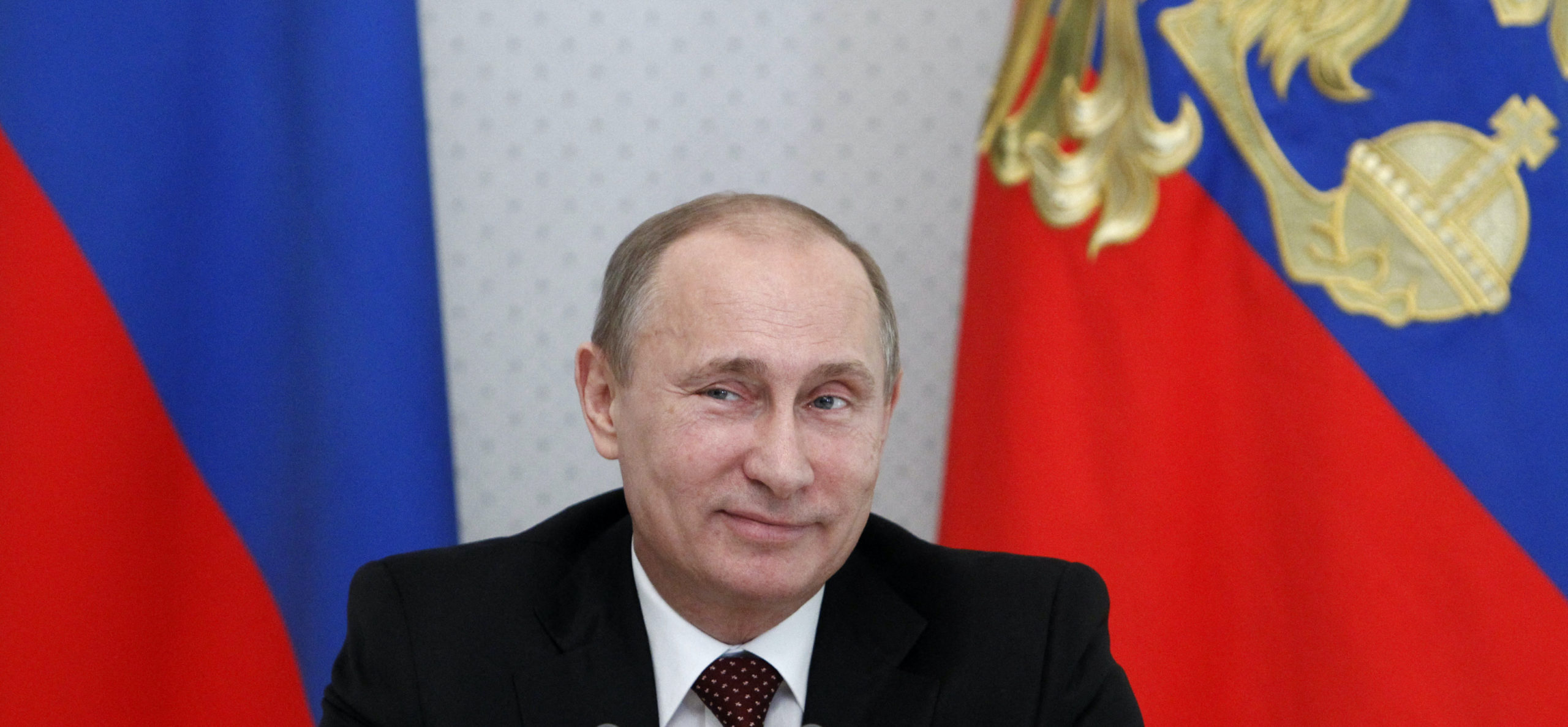It’s starting to heat up in Ukraine. This week Russian President Vladimir Putin formally recognised the two breakaway republics in the eastern Donbas region, and some Western analysts are claiming that this is just the beginning of a full-scale invasion of the country. That remains to be seen, but even if a full-scale invasion doesn’t transpire, Russia has already been hit with a new barrage of sanctions.
The West first used sanctions against Russia the last time there was trouble in Ukraine, eight years ago. It all started in March 2014, when then-President Barack Obama announced travel bans and asset-freezes for those responsible for the military intervention in Crimea. Over the next year, many more rounds followed, aimed especially at the finance, defence and oil sectors. A full array of blocs and countries got in on the action — from the European Union to Australia.
During that year, the Russian economy collapsed. Their currency, the rouble, halved in value. Inflation peaked at 17%. Interest rates were raised to 15% to stop the bleeding and the Russian economy slipped into a recession. The fear in Russia was palpable. I still remember a Russian woman I had gone to university with reaching out to me on Facebook and asking if I would donate sterling to her charity. Many Russians alive today remember the catastrophic collapse of the USSR and in those dark days of 2014, they thought it was happening all over again.
But the disaster was short lived. After less than a year, the rouble stabilised, inflation came down and the economy started growing again. Many in London and Washington had convinced themselves that they had brought Russia to its knees. Had they?
If they had, it was not through sanctions. Sanctions work effectively on tiny economies like Cuba, but they do not work well against large economies like Russia, especially those which are heavily reliant on oil and gas exports. Oil and gas are hot commodities, and they are what economists call ‘fungible goods’, meaning they can be easily interchanged with another form of the same product. If we try to block Russian oil and gas exports, we will have to buy from another producer and the countries that once bought from that producer will simply turn to buy from Russia. Supply and demand sorts it out.
What really brought the Russian economy to its knees was the 2014 collapse in the oil price. The rouble is correlated with the oil price; if the latter falls sharply, the former follows it down. So, what drove the decline in the oil price in 2014?
Some have claimed that the US and the UK used their diplomatic clout — especially with Saudi Arabia — to dump oil supply onto the market and crash the price. But even if this was true, it’s unlikely they could repeat the same trick. Back in 2014, the world was growing sluggishly, the oil price was extremely high, and the US had massively increased its oil and gas production through the then-new technology of fracking. Today the world is in a different place; the world economy is running hot – some would say: too hot. The US is still energy independent, but it is no longer gaining rapid ground over the energy market share. That means that the impact of fracking on energy markets has already been ‘baked in’.
The other difference is that in 2014, Russia had been living with windfall oil revenues for years. Between 2011 and 2014, oil rarely slipped below $100 a barrel. Today we are seeing similar prices, but they are a very recent phenomenon. Since 2016, oil has rarely crossed $70 a barrel. For this reason, the rouble is likely less sensitive to the oil price than it was in 2014.
It is the energy market, not the bluster of Western politicians, that we should keep an eye on. The sanctions are — from a macroeconomic point-of-view, at least — kabuki theatre.











Join the discussion
Join like minded readers that support our journalism by becoming a paid subscriber
To join the discussion in the comments, become a paid subscriber.
Join like minded readers that support our journalism, read unlimited articles and enjoy other subscriber-only benefits.
Subscribe